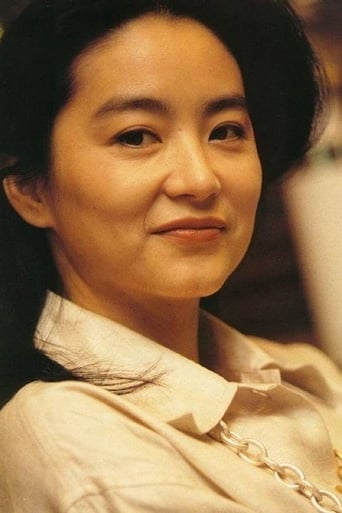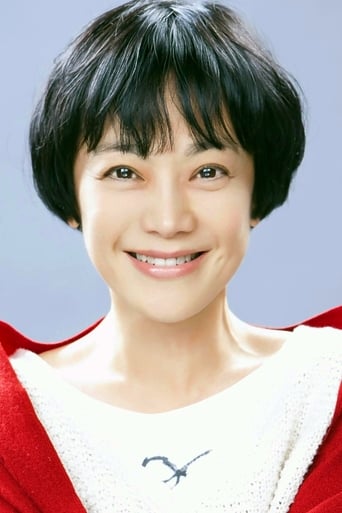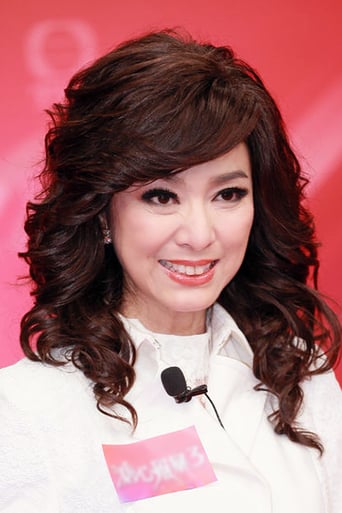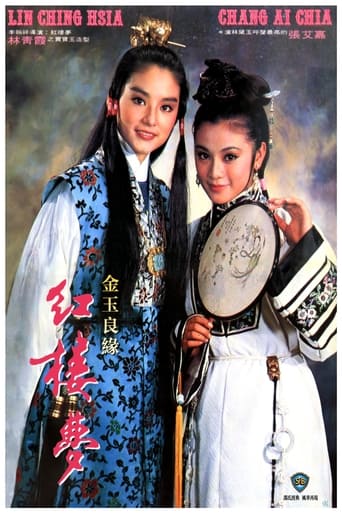
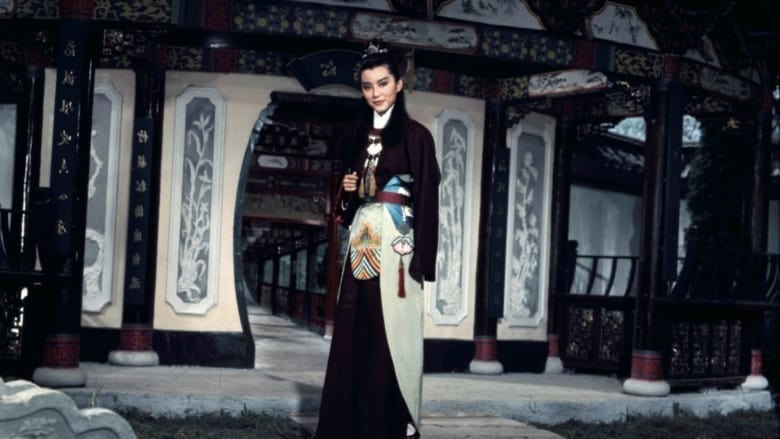
The Dream of the Red Chamber (1977)
Pao-yu is in love with his cousin, Lin Tai-yu, but his family has other marital plans for him that will leave both broken-hearted.
Watch Trailer
Cast
Reviews
Pretty Good
Exactly the movie you think it is, but not the movie you want it to be.
Through painfully honest and emotional moments, the movie becomes irresistibly relatable
Very good movie overall, highly recommended. Most of the negative reviews don't have any merit and are all pollitically based. Give this movie a chance at least, and it might give you a different perspective.
I have been reading the original story, so naturally I am curious about this adaptation. By the third scene my heart is swimming in tears.What an amazing actress Miss Lin is, to be able to wrench such emotions from the audience. A truly stunning performance. Visually the film is a feast most astonishing, bringing an ancient Chinese style of illustration into a livid life form. The scene where Jia Baoyu visits the memorial to his true counterpart had the most sublime impact which I cannot describe. Small wonder that I read that this is Miss Lin's favourite film. Whilst the depth and nature of the other major characters was not fully explored, the cinematographic depiction of the reality of the world inhabited by Jia Baoyu and his true counterpart provided a most interesting and soul satisfying focus for any students of the original work. The capture of this essence by the director is a supreme achievement.
The last Huangmei offering from Shaw studio is finally here! It was a very shrewd decision to cast Brigitte Lin, the reigning queen of the 70s Qiong Yao romances as Pao Yu and under the meticulous direction of Li Han Hsiang, she managed to pull it off and made this version of Pau Yu uniquely her own. Sylvia Chang has the esteemed role of Dai Yu but seemed miscast and tried too hard to make herself a tragic figure. In the hectic rush to complete the film for premiere ahead of the other competing version from Taiwan by Ivy Ling Po, many locations and scenes were skipped as evidenced by a few unfilmed tracks from the EMI original soundtrack release. Basically a one man/woman show for Brigitte Lin as other characters are under developed or completely left out and what a shame even the singer who dubbed all the songs was not mentioned. Applaud for the musical arrangements by Wang Fook Ling, which stand the test of time and still pull all the heart strings after 30 years!
Love discovered and lost is but one of the themes of this lavish Shaw Brothers' rendition of an old Chinese tale.Western audiences might find it confusing to find that the male romantic lead, Jia Baoyu, is played by a female-- but this is merely to show an excessive of sensitivity and tenderness, as well as a childlike innocence. And, while it might take a little getting used to, Brigitte Lin does a successful job in pulling it off.The movie plays like an opera. And, indeed, it does share a number of the characteristics of both Western and Chinese opera-- again with great success, but the plot moves along through both dialogue and song. The depths of the emotions chartered here are quite dramatic, and maybe a touch melodramatic, but that is a good representation of human nature, particularly in matters of the heart. There is an invariable drama to love which supersedes all reason. The primary plot of the slow realization of a first, true love is nicely set off by the secondary plot of jealousy and deceit among the family and its servants. It might almost seem heavy-handed, but a strong cast, boasting strong performances cares it off flawlessly.Newly remastered in lavish colors, this film is a true treasure in every sense of the word. Clearly, one of the Shaw Brothers' best.
For this lavish 1977 Shaw Bros. adaptation of the classic Chinese novel, "The Dream of the Red Chamber," director Li Han-hsiang (LOVE ETERNE) cast two young Taiwanese actresses in the central roles of young lovers Jia Baoyu and Lin Daiyu. Brigitte Lin, then a star of contemporary Taiwanese melodramas and romantic comedies and eight years away from the success she would have in Hong Kong films like PEKING OPERA BLUES, plays the male role of Baoyu, the young scion of the Jia household, while Sylvia Chang (a future star presence in Hong Kong cinema in her own right) plays the frail Daiyu, a cousin who has been sent to live in the house after the death of her mother. The two teen-age cousins are drawn to each other at first sight and, over the years, despite the family's concerns, grow up and seek to marry. The female heads of the Jia household, led by Baoyu's grandmother (Wang Lai), mother (Ouyang Shafei), and manipulative aunt (Hu Chin), prefer that Baoyu marry another, healthier cousin and set in motion a plot to deceive him into doing so. The almost arbitrary decision to thwart the two lovers results in tragedy and great upheaval for all.I don't believe I've ever seen two star performances quite like those delivered by Lin and Chang in this film. Some might consider such work overly melodramatic, but I would argue that the entire film is driven by the psychological states of the two lead characters. They exist on an entirely different emotional plane from the other characters and everything is experienced through their perceptions. No one else in the film can see or feel what passes between them. They move differently from the other characters in a genre (Huangmei Opera) that normally relies a great deal on characters' stylized movements. They look out at the world differently. There are unforgettable closeups that convey multiple layers of psychic pain and loss. There is one chilling moment where the two gaze at each other across the chasms of madness, despair and grief and smile and slowly begin to laugh together while oblivious to anything or anyone else around them.Both characters are completely at odds with the strictures of the setting and the customary behavior expected of them. Every move they make, every gesture, every expression is one of dissatisfaction and even defiance, although they act out these feelings in different ways. Baoyu is an impulsive free spirit who does what he wants (and gets brutally punished for it by his father in one scene). Daiyu withdraws into herself, crying frequently and adopting a private ritual of burying fallen flower petals, a practice mocked by the other maidens. The two quickly understand how completely in tune they are with each other. Almost the entire second half of the film is devoted to the grief, melancholy, and outrage fueled by the family's ill-fated attempt to impose their will on Baoyu, with sad songs and dying laments on the soundtrack, creating a cinematic treatment of heartbreak as wrenching as any such treatment can be.There are so many other breathtaking achievements to single out in this movie, from the production design to the costumes to the music and song score to the powerful acting by the supporting cast. Ultimately, though, it's all about the two lead performances and their singular capacity to create a uniquely soul-piercing emotional experience that frees itself from the stylization of the Huangmei Opera school of film-making to create a one-of-a-kind Hong Kong film. (One need only compare this to the 1961 version, also produced by Shaw Bros. and relying on pretty much the same condensed adaptation, to see just how big a difference these two actresses make.) In the book, "The Last Star of the East: Brigitte Lin Ching Hsia and Her Films," by Akiko Tetsuya, Brigitte indicates in an interview that this film is the favorite of hers among the 100 films she's made. And now everyone can see why thanks to the recent release on DVD by Celestial Pictures of a beautifully restored edition.
